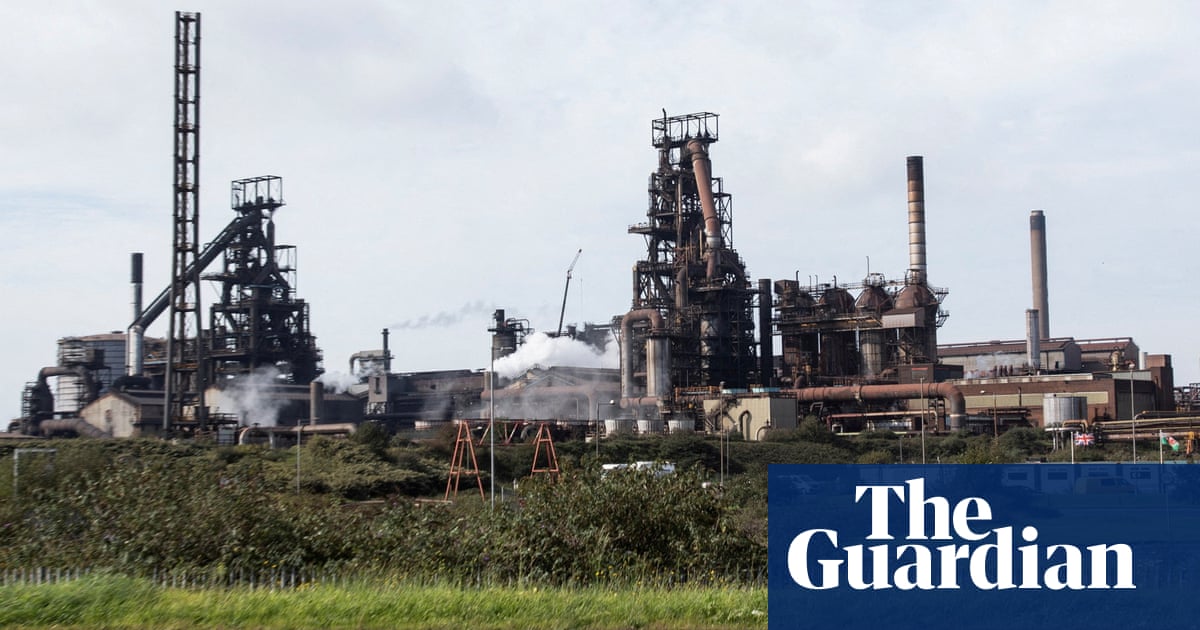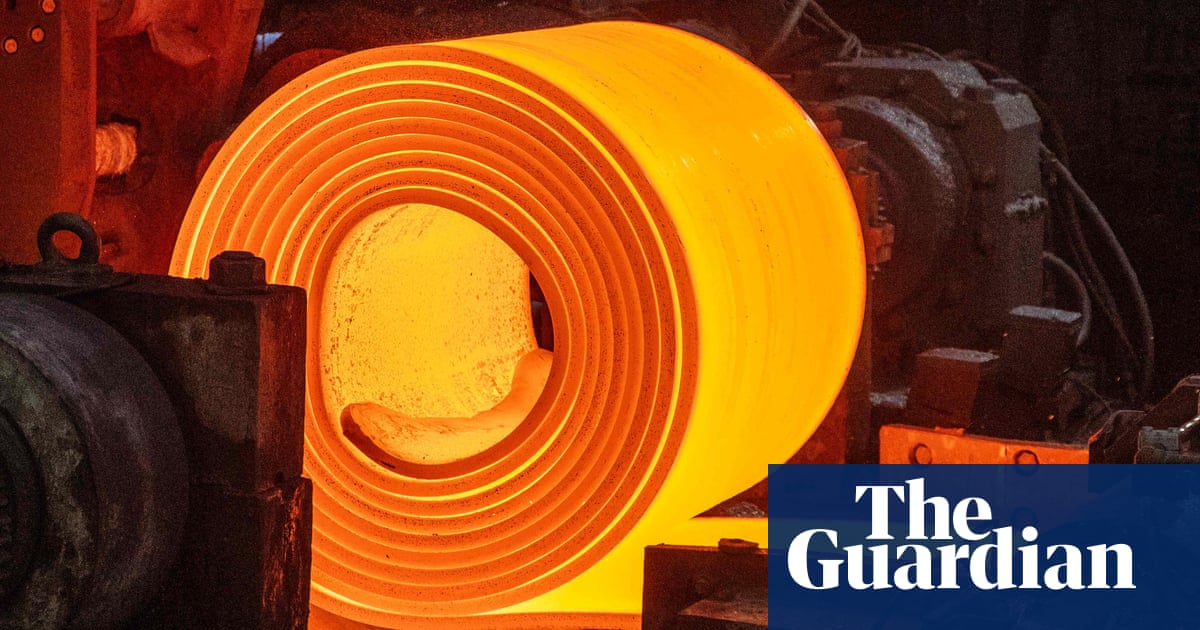
The government’s anti-dumping body has recommended that measures limiting the import of certain steel products be lifted after the decision to close the blast furnaces at Port Talbot.
The Trade Remedies Authority, which is charged with protecting UK industry from dumped or subsidised imports, said its preliminary view was to advise the business secretary, Kemi Badenoch, to suspend safeguarding measures on imports of hot-rolled flat and coil steel for a temporary period of nine months.
The decision came a month after Tata Steel revealed it was looking to shut the last two blast furnaces at the Port Talbot steelworks in south Wales, which would result in more than 2,800 jobs being lost.
After the decision, Tata and the UK steel importer Kromat applied to the TRA to consider suspending the safeguards. These put limits on the amount that can be imported to the UK tariff-free, with imports outside that quota incurring tariffs of 25%.
The closure of the blast furnaces will severely deplete the volume of hot-rolled flat and coil steel that can be produced in the UK, meaning demand for imports could breach the quota.
The TRA chief executive, Oliver Griffiths, said: “These reviews are designed to prepare the current steel trade regime for future changes in production at Port Talbot.
“We want to avoid a situation where new imports needed to backfill reduced domestic production pay tariffs of 25%, loading additional costs on to the UK economy.”
The TRA suggested that, given Tata was the sole UK producer of these goods, it was unlikely that allowing more imports would create serious injury to UK producers.
Tata has said it intends to build four greener electric arc furnaces at the Port Talbot site but these will only be able to process recycled steel, and will take up to four years to build.
The TRA said it was carrying out the reviews in parallel with the consultation between Tata and trade unions, and if a different production plan was agreed, it would take that into account in its recommendation to government.
William Bain, the head of trade policy at the British Chamber of Commerce, said: “These reviews are sensible measures from the Trade Remedies Authority, which needs to take account of future altered domestic production patterns together with the needs of the wider economy on access to steel.”
James Selka, the chief executive of the Manufacturing Technologies Association, said the move was positive if the UK didn’t intend to produce it in the future but that UK production was essential for future supply chain security.
He said: “We believe steel production in the UK is essential in supporting the government’s advanced manufacturing plan, which sets out to rebuild UK manufacturing after a decade of decline.
“Steel manufacture is vital for supply chain resilience.”
The TRA has also launched a review of the tariff-free quota for hot-rolled flat and coil steel in the future, which should conclude by the time the nine-month anti-dumping suspension ends and replace that measure.
Hot-rolled flat and coiled steel is one of 15 categories of steel that have safeguarding measures in place but are due to end on 30 June.
Earlier this week, the TRA recommended that the government extend the safeguards for these products for at least another two years.
Chrysa Glystra, the trade and economics policy manager at UK Steel, said: “Any changes to the domestic supply of safeguard category one, hot-rolled coil, in the UK, are specific to this category and do not impact the overall need for safeguards in the UK.
“All the reasons why they were first introduced are still very much valid, namely the risk of trade diversion resulting from US section 232 tariffs and rising global steelmaking overcapacity.”











